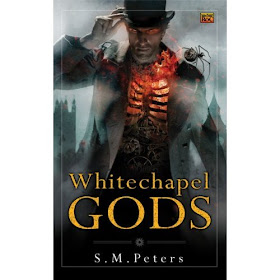**
There's a meme that has been floating around for a long time involving a list of 100 books. The list is supposed to have been compiled by the BBC, although according to
this article in
The Guardian, the list was actually compiled for World Book Day from respondents who were asked to name their ten most "precious" books. But why let a little something like facts get in the way of some fun?
The idea is to bold the books on the list you've read and italicize those you started reading and never finished. Because of the way it was compiled, it's a weird list, containing both
The Complete Works of William Shakespeare and
Hamlet, for instance. Now, I'm a huge fan of Shakespeare, but I can't claim to have read every single one of his plays (I have read all of his poetry). I also find the list heavy on Jane Austen and oddly lacking in other time-tested authors such as, say, Robert Louis Stevenson or Homer. But I'm digressing again.
In looking over my list, I realize the exercise reveals several things about me. First, I'm good at starting books but not so great at finishing them. In fact, I'm so famous for giving up on books that my writers group has given my name to the act of abandoning a book unfinished: they call it "proctorizing." I also realize I used to be better about finishing books than I am now. I still remember plowing through the 1600 pages of
The Count of Monte Cristo as a senior in high school (for fun, not for class). I doubt I'd make it these days.
Would I call any of these books "precious"? Well, maybe the
Complete Works of William Shakespeare. Very few of the works of this list would make it on to
my list of the 100 Best Books of All Times, or even a list of The 100 Books I Liked Best (I recognize that some of my best-loved books are not great literature.)
Anyway, without any more analyzing, here's my list:
1 Pride and Prejudice – Jane Austen
2
The Lord of the Rings – JRR Tolkien3 Jane Eyre – Charlotte Bronte 4 Harry Potter series – JK Rowling 5 To Kill a Mockingbird – Harper Lee 6 The Bible8 Nineteen Eighty Four – George Orwell9 His Dark Materials – Philip Pullman
10 Great Expectations – Charles Dickens11 Little Women – Louisa M Alcott 12 Tess of the D’Urbervilles – Thomas Hardy 13 Catch 22 – Joseph Heller14 Complete Works of Shakespeare15 Rebecca – Daphne Du Maurier
16 The Hobbit – JRR Tolkien 17 Birdsong – Sebastian Faulks
18 Catcher in the Rye – JD Salinger19 The Time Traveller’s Wife – Audrey Niffenegger
20 Middlemarch – George Eliot
21 Gone With The Wind – Margaret Mitchell
22 The Great Gatsby – F Scott Fitzgerald 23 Bleak House – Charles Dickens
24 War and Peace – Leo Tolstoy 25 The Hitch Hiker’s Guide to the Galaxy – Douglas Adams
26 Brideshead Revisited – Evelyn Waugh
27 Crime and Punishment – Fyodor Dostoyevsky
28 Grapes of Wrath – John Steinbeck 29 Alice in Wonderland – Lewis Carroll
30 The Wind in the Willows – Kenneth Grahame31 Anna Karenina – Leo Tolstoy 32 David Copperfield – Charles Dickens 33 Chronicles of Narnia – CS Lewis
34 Emma – Jane Austen
35 Persuasion – Jane Austen 36 The Lion, The Witch and The Wardrobe – CS Lewis
37 The Kite Runner – Khaled Hosseini38 Captain Corelli’s Mandolin – Louis De Berniere
39 Memoirs of a Geisha – Arthur Golden40 Winnie the Pooh – AA Milne
41 Animal Farm – George Orwell
42 The Da Vinci Code – Dan Brown
43 One Hundred Years of Solitude – Gabriel Garcia Marquez 44 A Prayer for Owen Meany – John Irving
45 The Woman in White – Wilkie Collins
46 Anne of Green Gables – LM Montgomery47 Far From The Madding Crowd – Thomas Hardy 48 The Handmaid’s Tale – Margaret Atwood
49 Lord of the Flies – William Golding50 Atonement – Ian McEwan
51 Life of Pi – Yann Martel
52 Dune – Frank Herbert53 Cold Comfort Farm – Stella Gibbons
54 Sense and Sensibility – Jane Austen 55 A Suitable Boy – Vikram Seth
56 The Shadow of the Wind – Carlos Ruiz Zafon
57 A Tale Of Two Cities – Charles Dickens
58 Brave New World – Aldous Huxley59 The Curious Incident of the Dog in the Night-time – Mark Haddon
60 Love In The Time Of Cholera – Gabriel Garcia Marquez
62 Lolita – Vladimir Nabokov
63 The Secret History – Donna Tartt
64 The Lovely Bones – Alice Sebold
65 Count of Monte Cristo – Alexandre Dumas 66 On The Road – Jack Kerouac
67 Jude the Obscure – Thomas Hardy
68 Bridget Jones’s Diary – Helen Fielding69 Midnight’s Children – Salman Rushdie
70 Moby Dick – Herman Melville
71 Oliver Twist – Charles Dickens 72 Dracula – Bram Stoker73 The Secret Garden – Frances Hodgson Burnett74 Notes From A Small Island – Bill Bryson
75 Ulysses – James Joyce
76 The Bell Jar – Sylvia Plath77 Swallows and Amazons – Arthur Ransome
78 Germinal – Emile Zola
79 Vanity Fair – William Makepeace Thackeray
80 Possession – AS Byatt
81 A Christmas Carol – Charles Dickens 82 Cloud Atlas – David Mitchell
83 The Color Purple – Alice Walker
84 The Remains of the Day – Kazuo Ishiguro
85 Madame Bovary – Gustave Flaubert 86 A Fine Balance – Rohinton Mistry
87 Charlotte’s Web – EB White88 The Five People You Meet In Heaven – Mitch Albom
89 Adventures of Sherlock Holmes – Sir Arthur Conan Doyle 90 The Faraway Tree Collection – Enid Blyton
91 Heart of Darkness – Joseph Conrad
92 The Little Prince – Antoine De Saint-Exupery93 The Wasp Factory – Iain Banks
94 Watership Down – Richard Adams
95 A Confederacy of Dunces – John Kennedy Toole96 A Town Like Alice – Nevil Shute
97 The Three Musketeers – Alexandre Dumas
98 Hamlet – William Shakespeare 99 Charlie and the Chocolate Factory – Roald Dahl
100 Les Miserables – Victor Hugo








































